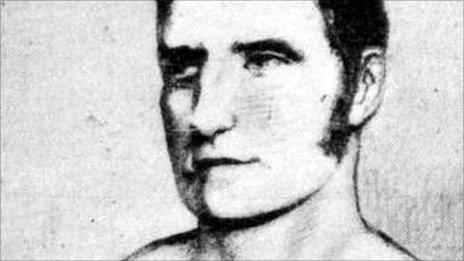Boxing: When a freed slave fought a sporting star
- Published
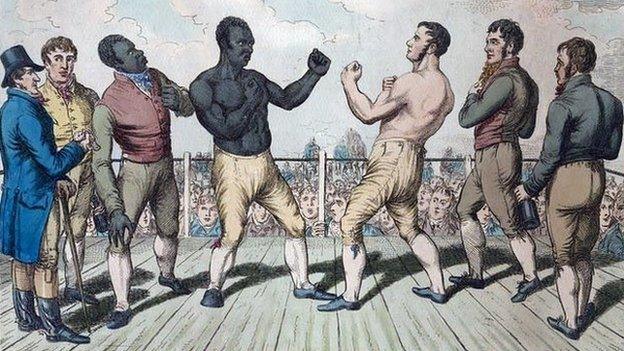
The fight between Tom 'The Black Diamond' Cribb and Tom 'The Moor' Molineaux was the first ever World Championship fight
In the brutal world of bare-knuckle boxing a fight, more than 200 years ago, between a freed American slave and a Bristol-born boxer remains one of the most controversial and bloody battles in boxing history.
The contest - the first ever world title fight - between Tom Cribb, the son of a Bristol coal worker, and Tom Molineaux, a slave who won freedom with his fists, is an "an incredible story of racism, intrigue, gambling and above all courage".
The story of the fight is now being turned into a play - Prize Fighters - by director Ed Viney.
He said it was the struggle of the fighters to make something of themselves in 19th Century society which he found fascinating.
"These characters seem to represent to me a huge amount of change and struggle which was going on in society as the country comes to terms with the abolition of the slave trade and the huge social and economic changes that brought about."
Heroes of their day, the pugilists drew in huge crowds and won and lost fortunes for their rich and aristocratic patrons.
In his book The Bristol Boys, author Jack Allen said generations of bare-knuckle boxing champions, brought up in the slums of Bristol, became the "very first sporting superstars".
Between 1780 and 1820 five Bristol boxers rose to become All-England Champions - Big Ben Brain the "Napoleon of the Ring", Jem Belcher, Henry Pearce "The Game Chicken", John Gully and the most famous of them all - Tom "The Black Diamond" Cribb.
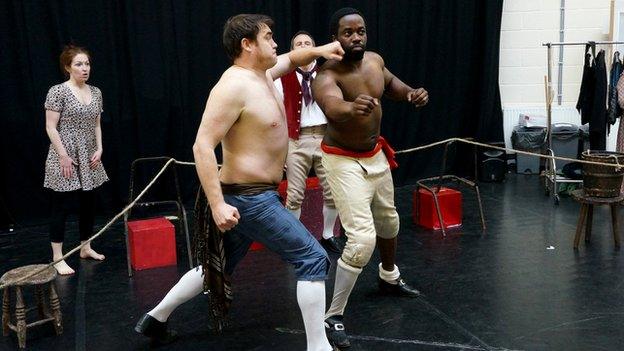
A new play Prize Fighters is based in part on the brutal fight between Tom Cribb and Tom Molineaux
Born in 1781 in Hanham, a Bristol suburb, Cribb was the David Beckham of his day. His fights were watched by tens of thousands.
"Considering the state of the roads and the effort to get to the fights you can imagine the excitement and enthusiasm that these fighters inspired," said Mr Allen.
Cribb's fight with Tom Molineaux (also known as The Black Ajax or The Moor) remains one of the most brutal ever fought.
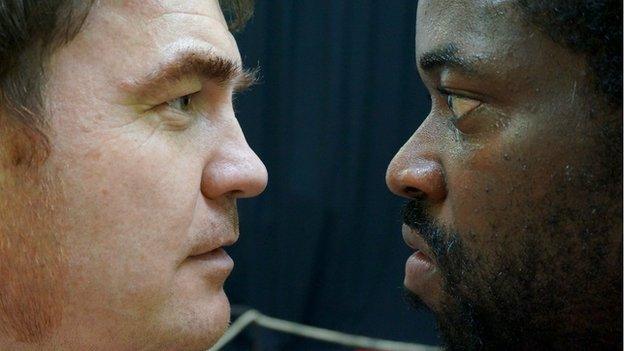
Not just a battle of strength and courage huge bets were placed on the fights
"Boxing then, as now, is one of the sports where you can get out of the gutter - it's your only way out and there was big money to be made," said Jack Allen.
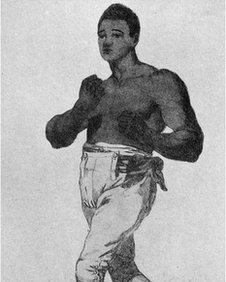
Former slave Tom Molineaux heard about the fame and fortune of the Bristol Boys from sailors in New York
Tom Molineaux grew up as a slave on a plantation in Virginia and won his freedom in a fight. He then battled his way up from the Deep South to New York where he claimed the title "Champion of America".
But it was in England where the real money was to be made. He sailed for England and challenged Cribb in the first World Boxing Championship.
The fight took place at Copthall Common near East Grinstead in Sussex on 18 December 1810.
It was, according to Jack Allen, "a brutal and bloody affair and one of the most controversial fights ever held in England".
Cribb was brought time and time again to his knees while the crowd, who sensed a Molineaux victory, subjected the US fighter to appalling racist abuse.
After 28 rounds Cribb was knocked out and could not "come up to scratch" - a line drawn on the ground.
Molineaux had won - but Cribb's camp, playing for time, accused him of having bullets in his fist which gave Cribb time to rally.
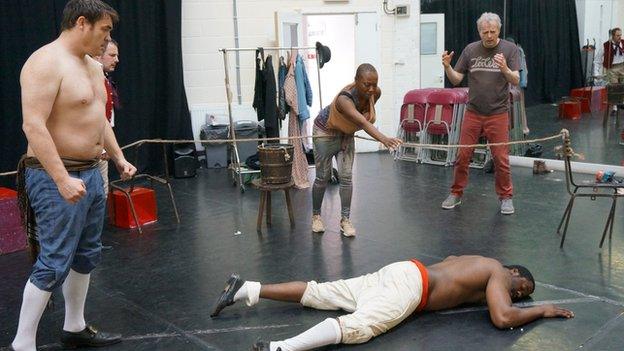
Round after round Cribb was brought to his knees but Molineaux was never declared the winner
Molineaux battled on for two more rounds. He threw Cribb to the floor but hit his head against one of the wooden ring stakes which concussed him. Sensing his moment Cribb punched Molineaux in the throat.
Broken, lying on the floor Molineaux raised his hand and said "Massa Richmond, me can fight no more".
"So ended the first World Boxing Championship title fight with a result no Englishman can be proud of," said Jack Allen.
In the play, Ed Viney sets the fight against the wider social and political struggles which Bristol was experiencing.
"There was a huge amount of physical energy going on in 19th Century Bristol," he said which was set against the "continuing push for the abolition of slavery as well as a great push for big engineering projects in Bristol."
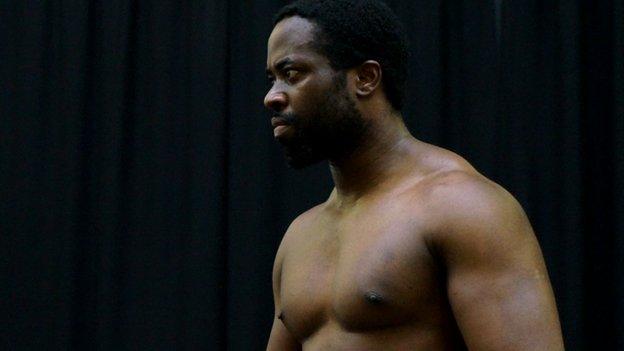
I-Kay Agu plays The Black Cutlass in the play Prize Fighters
Actor I-Kay Agu plays a character based on Tom Molineaux.
He said: "I can understand what boxers go through - the adrenalin of the competition, the fact that you want to win over the crowd and prove yourself.
"I might want to fight but there is an element of honour as well that keeps you in a good place instead of becoming a monster."
Prize Fighters will be performed at the Tobacco Factory in 2015.
- Published12 March 2013
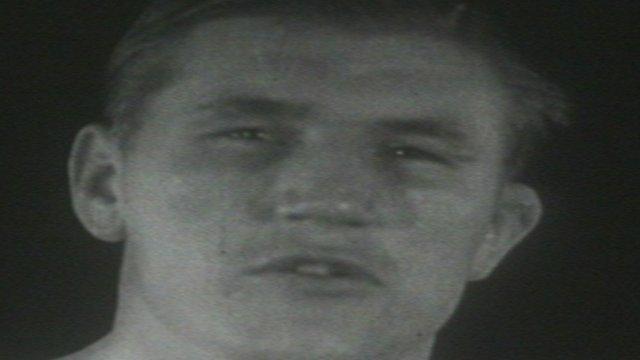
- Published11 October 2011
